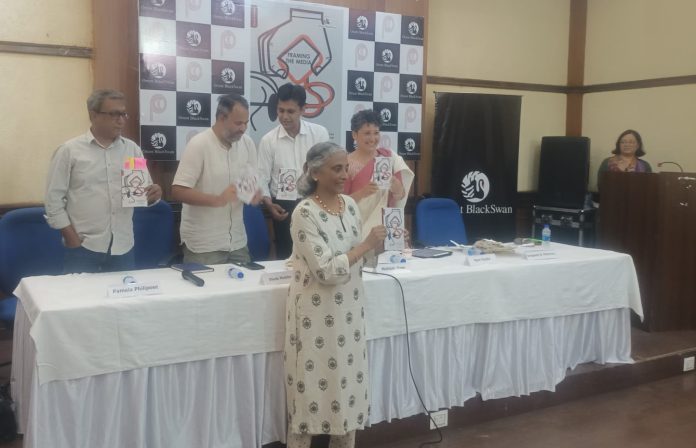– Mohd.Naushad Khan
A new book titled Framing the Media: Government Policies, Law, and Freedom of the Press in India by veteran journalist Pamela Philipose was launched on Wednesday. The event was held at the Press Club of India and witnessed a large gathering.
The book explores how the Indian state has influenced and often limited press freedom through its laws and policies. It raises important concerns about the future of democratic expression.
At its core, the book focuses on Article 19(1)(a) of the Indian Constitution, which guarantees freedom of speech and expression. It traces the history of media regulation in India from colonial times to today.
The book discusses the role of Press Commissions after Independence, the strict censorship during the Emergency of 1975–77, and the impact of economic liberalisation on media ownership. It also covers new digital restrictions under laws like the Information Technology (IT) Rules, 2021.
Indira Jaising, eminent jurist and former Additional Solicitor General of India, praised the book. She said freedom of expression is essential for a just society. She added that the book will help in building a stronger rule of law, which depends on free speech.
Pamela Philipose, now the ombudsperson at The Wire, has over 40 years of experience in Indian journalism. She said her book offers both historical context and present-day insights into the conflict between state control and media freedom.
The book includes case studies and legal comparisons with countries like the UK and the US. It highlights best global practices and shows where India stands in comparison.
Apar Gupta, a lawyer and digital rights activist, called the book “concise yet deep.” He said it shows how social media takedowns and internet blackouts are now done without transparency or court orders. He warned this could destroy the internet’s original promise of free speech.
Gupta stressed the need to protect digital spaces, which often remain the only places for dissent. He urged journalists, lawyers, and civil society to stand up for constitutional values and resist censorship.
Journalist Sangeeta Barooah Pisharoty added a personal note. As one of the first women reporters from Northeast India, she spoke about changes in journalism. She remembered a time when the story mattered more than the byline. Now, she said, journalists face both censorship and personal attacks. She warned that press censorship is harming Indian democracy.
Framing the Media is already attracting attention from scholars, journalists, and policy thinkers. Its deep research and timely analysis offer a valuable understanding of how public discourse is controlled in India.
Senior journalist Mahtab Alam moderated the event.




